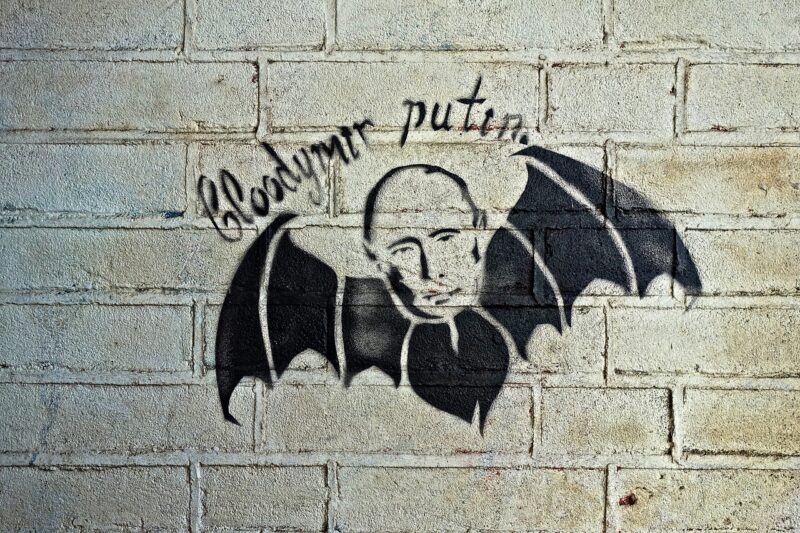Why Political Satire Plays a Crucial Role in Democracies Around the World
November 16, 2024

Political satire has emerged as a powerful facet of modern democratic societies, serving not only as entertainment but also as a critical tool for social commentary and civic engagement. From late-night TV shows to internet memes, political satire seeks to hold those in power accountable while encouraging public discourse aorund important issues. This article explores the significance of political satire in democracies and the reasons why it plays a crucial role in fostering informed and engaged citizenry.
1. The Essence of Political Satire
Political satire is a form of humor that critiques individuals, institutions, or policies involved in politics. It can take various forms, including television cartoons, stand-up comedy, social media commentary, and print media. Satire often reveals the absurdity of political situations, highlights hypocrisy, and encourages viewers to think critically about current events.
Some notable forms of political satire include:
- Television Programs: Shows like “Saturday Night Live,” “The Daily Show,” and “Last Week Tonight” are emblematic of how television programs can present political content humorously while informing audiences about current events.
- Cartoons and Comics: Editorial cartoons have long served as a visual shorthand for political commentary, often encapsulating complex ideas in a single frame.
- Online Content: With the rise of social media, memes, and satirical news websites, political satire has become more accessible and influential in spreading ideas virally.
Satire allows for an exploration of serious topics in a format that is engaging and relatable, tapping into everyday frustrations while simultaneously airing grievances about political systems.
2. Holding Power to Account
One of the primary functions of political satire is to hold those in power accountable. By exposing hypocrisy, corruption, and government failures, satire plays a significant role in maintaining the checks and balances necessary in a democracy. This accountability encourages greater transparency and responsiveness from leaders.
Satirical performances can directly challenge politicians’ narratives and actions, prompting a reaction from both the targets of satire and the public. Notably, political satire has:
- Encouraged scrutiny of public promises and policies, urging the public to demand better governance.
- Become a platform for marginalized voices, shedding light on issues that might be overlooked or ignored by mainstream media.
- Fostered social movements that seek change, with satire acting as a catalyst for public engagement and mobilization.
By delivering critical commentary through humor, satire lowers the barriers to engaging with political issues, making it easier for individuals to participate in civic discussions.
3. Satire as a Tool for Civic Engagement
Political satire not only entertains but can also spark interest in civic engagement. Studies have shown that individuals who consume political satire are often more informed about political issues and more likely to engage in political discussions, vote, or participate in civic activities.
Satire has several positive impacts on civic engagement:
- Lowering Apathy: By presenting political discourse in an entertaining light, satire can motivate young audiences to take an interest in politics, who might otherwise be disenchanted with the political process.
- Inspiring Action: Satirical content often includes calls to action, urging viewers to get involved in political processes, such as advocating for causes or voting in elections.
- Facilitating Dialogue: Sharing satirical content often leads to discussions among peers, inviting differing viewpoints and promoting open dialogues about important issues.
The dynamic interplay between satire and civic engagement can create fresh opportunities for marginalized voices to be heard and considered.
4. The Risks of Political Satire
While political satire is essential for healthy democracies, it comes with its own set of risks. In some regions, political leaders may suppress satire or enact laws to control the narrative, often stifling free speech and undermining democracy.
Some significant risks include:
- Censorship: Authoritarian regimes may restrict satirical content, fearing that it could incite dissent or undermine their authority.
- Misinterpretation: Satire can sometimes be misunderstood, leading to confusion or the spread of misinformation about political issues.
- Polarization: In an increasingly divided political landscape, satire can reinforce existing biases and create echo chambers, potentially stifling constructive conversation.
Despite these challenges, the overall importance of political satire in democracies cannot be overstated.
5. Conclusion: The Bright Future of Political Satire
In conclusion, political satire serves a crucial purpose in democracies worldwide by fostering accountability, encouraging civic engagement, and stimulating public discussion. Although there are risks involved, the ability of satire to attract new audiences to political discourse and broaden the scope of critical engagement cannot be ignored. As new media continues to evolve, political satire will remain important in shaping democratic conversations and maintaining a vibrant public space for debate.
As citizens, engaging with political satire not only helps to inform our perspectives but also empowers us to advocate for a more transparent and accountable government. In an age where trust in institutions is declining, political satire can provide a necessary balm and a reminder of the role laughter plays in challenging the status quo.







